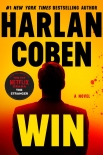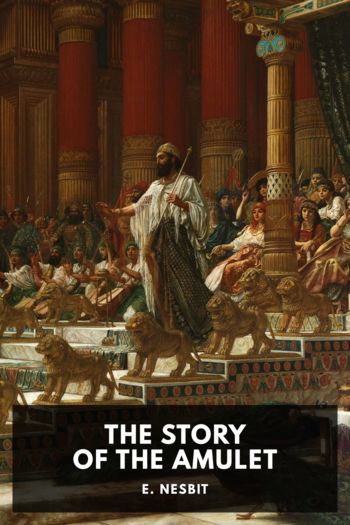WIN, Coben, Harlan [ebook and pdf reader .txt] 📗

Book online «WIN, Coben, Harlan [ebook and pdf reader .txt] 📗». Author Coben, Harlan
There is anger in his voice—anger and deep sadness.
“He was my baby brother. I loved him. But after that incident with Ashley Wright, I knew that he would never change. Perhaps, I don’t know, perhaps if our parents hadn’t always facilitated him, perhaps if they had made Aldrich get help or face some consequences, it wouldn’t have come to that. But it was too late. Granddad was dead, so it was up to me. I did what I thought best.”
“You cut ties.”
He nods. “I didn’t know what else to do.”
I nod and move closer to him. He is a simple man, my father. He has chosen to live behind these hedges, safe, protected. He has chosen to be passive. Has that worked for him? I don’t know. I am my father’s son, but I am not my father. He did what he thought best, and I love him for it.
“What?” he asks. “Is there something else?”
I shake my head, not trusting myself to speak.
“What is it?” he asks.
“Nothing,” I assure him.
He searches my face for a few moments. Again I show nothing.
I do not want to break his heart.
After a few moments pass, he points to the rack on his left. “Grab a club,” he says, as he lines up the balls for our favorite backyard game.
I want to stay with him. I want to stay and play Closest to the Cup with my father until the sun sets, like we used to when I was a child.
“I can’t right now,” I tell him.
“Okay.” He looks down at a golf ball, as though he’s trying to read the logo on it. “Later maybe?”
“Maybe,” I say.
I want to tell him the truth. But I never will. It would only hurt him. There would be no upside, no positive change. I stay silent and wait until he turns his attention back to the small white ball on the green. His eyes focus on it, only it, and I know, because I’ve seen him doing it many times, he is escaping into this simple, habitual activity. I try to do the same sometimes. I even get there once in a while.
But it’s not really who I am.
CHAPTER 35
The sound of tires crunching on the gravel awakens me.
I’d fallen asleep on the couch, which is a surprise. Exhaustion alas trumped keyed-up. I wouldn’t have guessed. I am still lying on the couch when the front door opens and Cousin Patricia walks in carrying a bag of groceries.
The first thing she sees is me on the couch.
“Win? What the hell?”
I stretch and check my watch. It’s 7:15 p.m.
“How did you get in? I locked the doors and set the alarm.”
“Oh yes,” I say with all the droll I can muster. “It’s really impossible for me to get past a Medeco lock and an ADT alarm system.”
When Patricia looks past me, when her gaze reaches the dining room table, she stumbles a step back. I wait. She doesn’t speak. She just stares. I slowly stand, still stretching.
“Cat got your tongue, Cousin?” I ask.
“You broke into my home.”
“Nice deflection,” I say. “But if we must go there, yes.” Then I point to the dining room table and mimicking her voice, I add, “You stole my Picasso.”
It’s not my Picasso, of course. But I liked the repetitiveness of the phrasing.
“I expected a more arduous search for it,” I tell her. “I can’t believe you just hung it in your bedroom.”
Cousin Patricia gives a small shrug. “I don’t let anyone go in there.”
“And that’s where it’s been this whole time?”
“Pretty much.”
“Ballsy,” I say.
She shrugs. “Not really. If anyone asked, I would say it was a replica.”
I nod. “People would buy that.”
She starts toward the dining room table. “Why did you screw off the back?”
“You know why,” I reply. “What did you do with the negatives?”
“How do you know about them?”
“Our art authenticator found a set in the back of the Vermeer. The negatives were square shaped—six centimeters by six—unusual by today’s standards. It didn’t take long to realize that they were very likely to have come from an old camera”—I glance at the shelf—“like your father’s Rolleiflex. Anyway, I figured that if your father had hidden some in the Vermeer, maybe he also hid some in the family’s only other masterpiece—the Picasso.”
Patricia stands over the painting now. “So you checked?”
“Yes.”
“And you didn’t find anything.”
I sigh. “Do we have to play this game, dear Cousin? Yes, the negatives are gone. You removed them. I did, however, notice a certain stickiness on the stretcher—from Scotch tape perhaps. In the Vermeer, the negatives were taped to the stretcher. It would stand to reason that the same applies to the Picasso.”
She closes her eyes and tilts her head back. I see her swallow and I wonder whether tears will follow. This is probably a time to offer a word or two of comfort, but I don’t think that will play here.
“Can we skip the denials, Patricia?”
Her eyes blink open. “So what do you want, Win?”
“You could tell me what really happened.”
“The whole story?” She shakes her head. “I wouldn’t know where to start.”
“Perhaps,” I say, “with your father befriending Ry Strauss in New York City.”
“You know about that?”
“I do. I also know about the Jane Street Six.”
“Wow,” she says. “I’m impressed.”
I wait.
“This is years after that night though,” she continues. “He would visit us from New York City. Ry, I mean. Dad introduced him as Uncle Ryker. He said Uncle Ryker was CIA, so I couldn’t tell anyone about him. I think I first met him when I was fifteen. He took an interest in me, but, I mean, yes, he was very good-looking and almost supernaturally charismatic. But I was fifteen. Nothing happened. It was never like that. I realized later that Ry was periodically coming to my father for money or a place to crash…”
She stops and shakes her head. “I don’t know where to go with this.”
“Jump ahead,”





Comments (0)